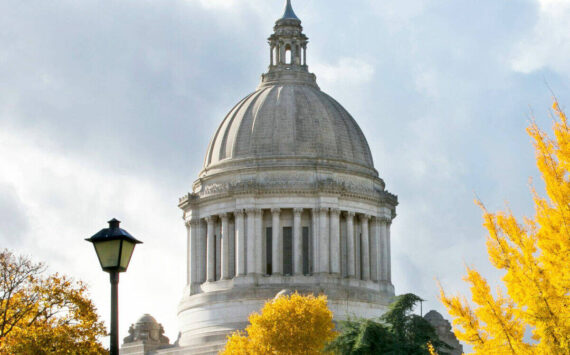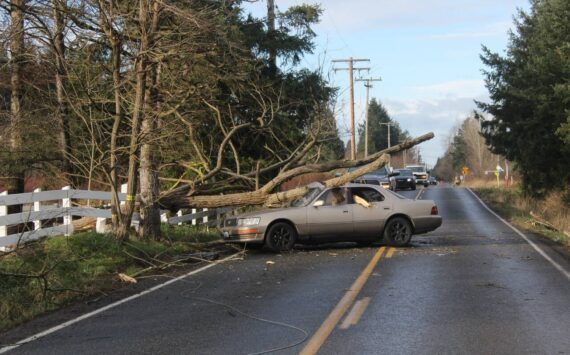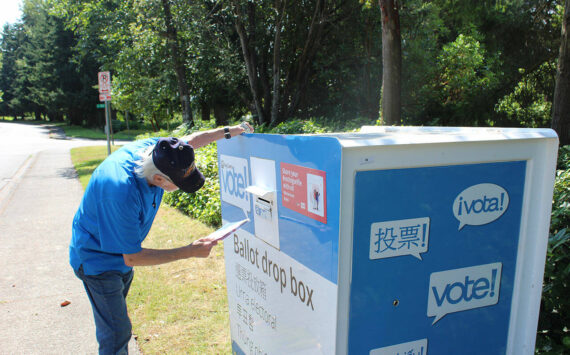The business of business in Tacoma continues, as the City Council learned Tuesday during an update by the Cross District Association of Tacoma, which represents the citys 12 neighborhood business districts.
Representative from each district meet on a monthly basis to discuss common concerns, develop creative solutions and advise city staff on the policies and practices that impact the well being of the dozen business districts.
The districts are: Dome District, Fern Hill District, Lincoln District, McKinley Hill District, Oakland/Madrona District, Old Town District, Proctor District, Portland District, Sixth Avenue District, South Tacoma District, Stadium District and Upper Tacoma District.
As way of background, this started in 1991, said Juli Wilkerson, director of the Tacoma Economic Development Department, during opening remarks referring to the neighborhood business district programs beginning with six districts.
On hand for the presentation were Karen Rich, president of the South Tacoma Business District, who runs Guardian Security Group, Inc. on South Tacoma Way, and John Trueman, president of the Old Town Business District, of Trueman Appraisal.
We look at revitalization of the community holistically, Rich said. Whats good for the community is good for Tacoma.
Some of the activities of the Cross District Association include working with the Tacoma Police Department to fight crime, removing blight, seeking sponsorship, providing city services to small businesses, investing in public art and planning for public improvement.
Both were quick to praise their partnership with the city and the volunteers that work hard to make the business districts a success.
Tacoma is the biggest supporter of the organization, Rich said.
I think its important to stress we get our strength from volunteers, Trueman said.
That strength is necessary in dealing with the changing business climate in Tacoma.
Trueman said that in the 1980s about 80 percent of businesses were small retailers and about 20 percent were large retailers. In 2003, those numbers are reversed, he said.
About 80 percent of all jobs in the United States are tied to small businesses, he pointed out.
Describing this shift to larger retailers as a huge challenge, Trueman said, Were learning to band together as small retailers.
It helps us feel connected to the community, Rich pointed out.
Despite the overall success of the program – doubling the number of districts since its inception – there remain hurdles to overcome.
We still face challenges, Trueman noted.
Some of those challenges include streetscaping plans that need to be completed, crime and safety concerns, staying competitive, disengaged property owners and maintaining sustainable associations.
Three of the dozen business districts are struggling, Rich said.
Overall, the City Council was impressed with the presentation and what the Cross District Association has accomplished.
They are very valuable assets to all of us, said Councilwoman Sharon McGavick, lauding small businesses.
Councilman Bill Evans said he hoped the Cross District Association was looking into the possibility of forming some new districts.
Promising another audience before the City Council, Mayor Bill Baarsma said, We will have you back, rest assured.
In other study session news, the City Council was updated on the citys two year, $341 million operating budget.
Overall general fund revenues are meeting expectations, City Manager James Walton said, with expenses below normal spending patterns.
Some highlights from the afternoon presentation:
– Overall revenue is $1.3 million higher than forecast for this period.
– The City Council is considering signing a $1.7 million contract with its outside legal firm to cover legal costs related to the lawsuit filed by the family of Crystal Brame, who was killed in April by her husband, then-Police Chief David Brame.
– The citys new computer department known as Business Information System is projected to cost $15 million next year, about $8 million more than expected. That didnt sit well with City Councilman Mike Lonergan, who wondered why this increase wasnt anticipated. I want to say to the city manager that something is horribly wrong with this picture, Lonergan said.
– Revenue ahead of projections include property, sales, utility and cellular phone taxes, as well as zoning and building permit fees. Falling below budget expectations: gambling taxes, natural gas use and fees charged for police responding to false alarms.
So, this is the new world were in, Baarsma said, referring to budget constraints – such as Initiative 747, which limits the citys property tax increase to 1 percent – that could create structural deficits.
The real challenge is going to come during the 2005-2006 biennium budget, Walton said.
We will have to make some tough decisions, he said.




